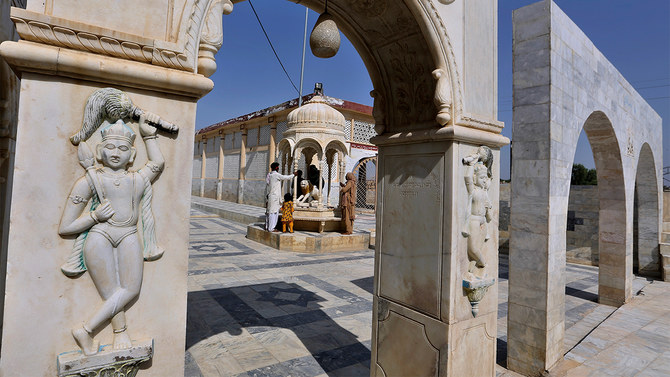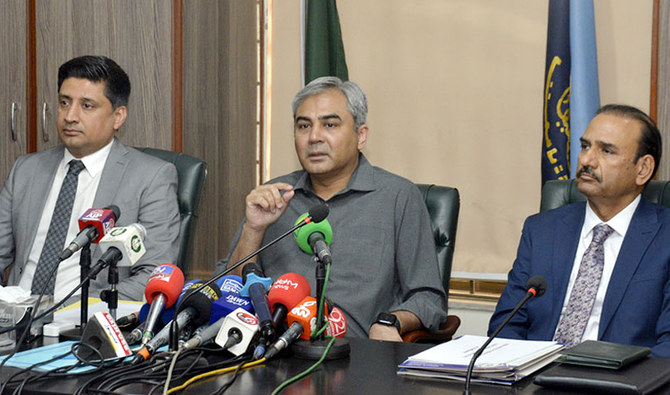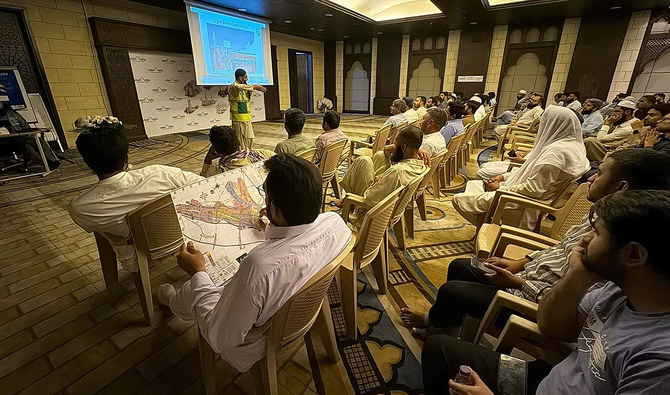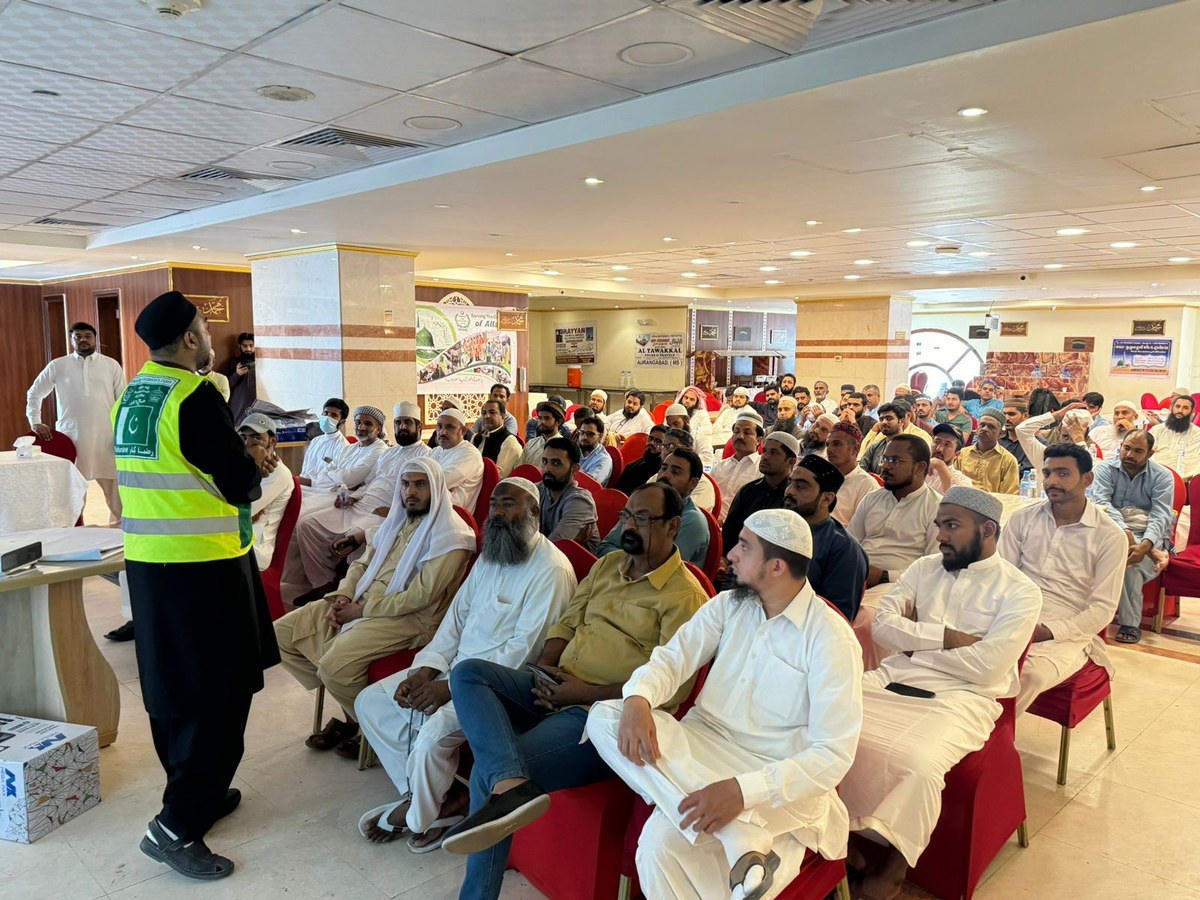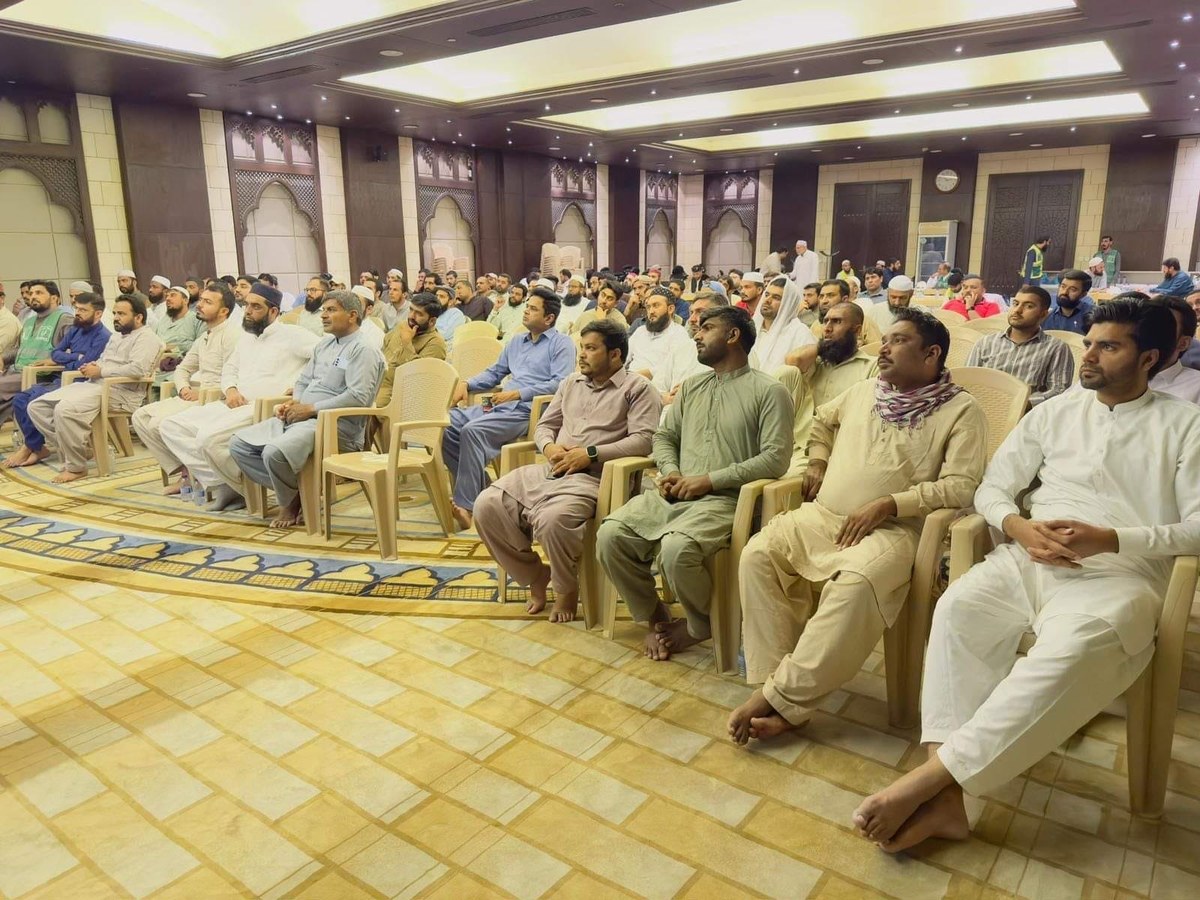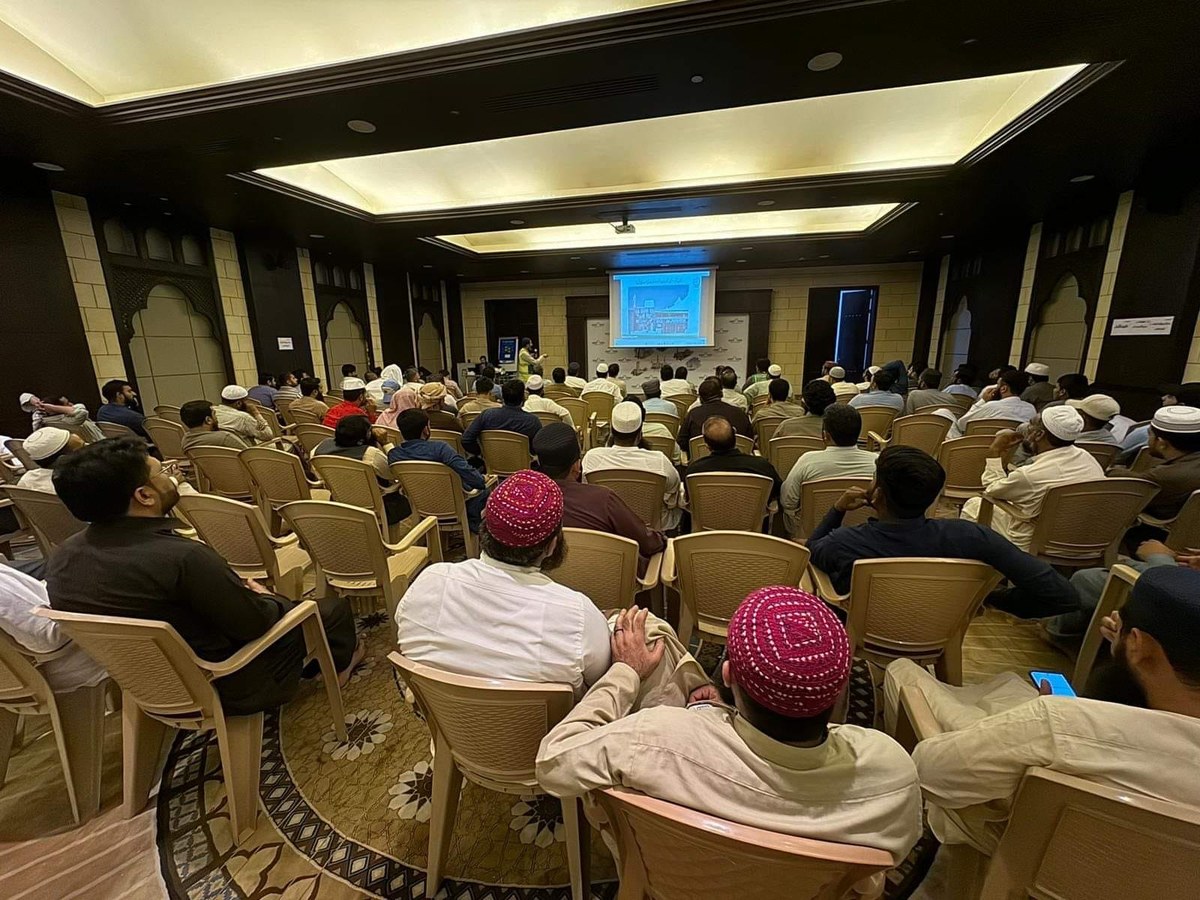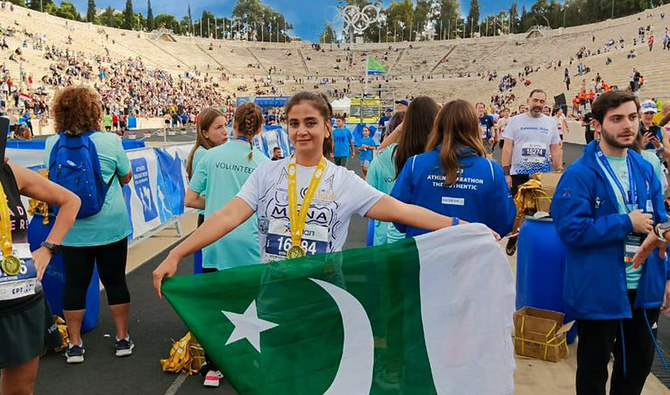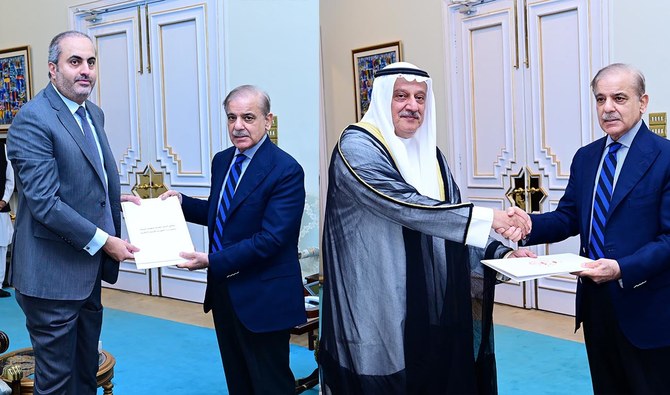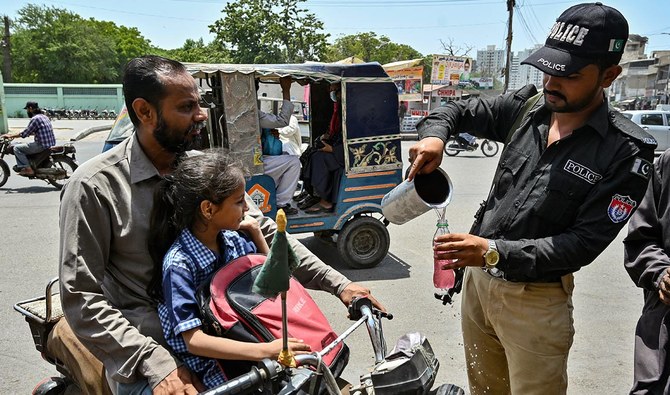SUKKUR: On the sandy banks of the Indus River, which flows top to toe through Pakistan and into its southern Sindh province, Hindus waited for brightly colored boats to ferry them to a peaceful island that has housed a temple for almost 200 years.
Cheers rang out across the water as the marble and sandalwood Sadhu Bela temple complex heaved into view. “Long live Sadhu Bela!" the boat's passengers cried.
The temple attracts tens of thousands of Hindus from within Muslim-majority Pakistan every year for festivals and rituals, including the recent celebrations of Diwali, an important Hindu holiday.
The island was gifted to the Hindu community by wealthy Muslim landlords in Sindh two centuries ago. It would have been an unthinkable act in modern-day Pakistan, where Hindus are often marginalized, persecuted, and even killed.
Around 4 million Hindus live in Pakistan, or about 1.9% of the country’s population, and 1.4 million are in Sindh.
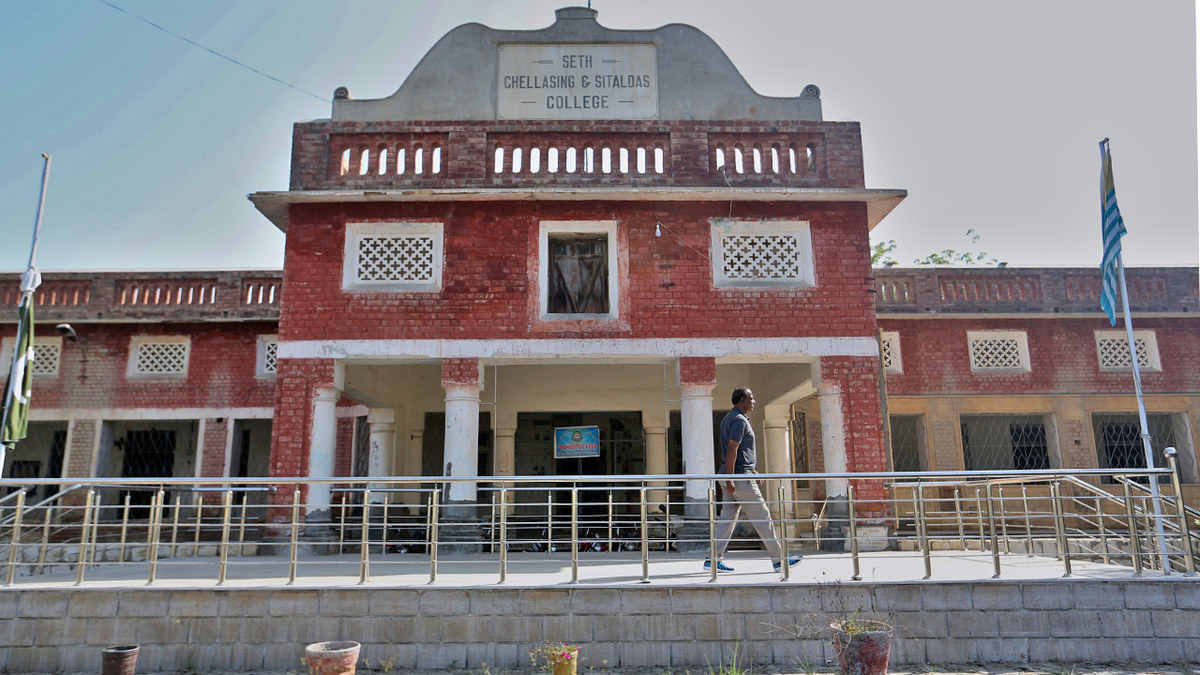
A man walks in a historical college named on Chella Singh and Sital Das, Hindu bankers who donated the bulk of funding for the construction of college, in Shikarpur, Pakistan, on October 26, 2022. (AP)
There is no ban on Hindu worship in Pakistan, but Hindus say openly practicing the faith is not a matter of routine. Decades of political hostility between majority-Hindu India and predominantly Muslim Pakistan present a challenge for the minority community, as many in Pakistan equate Hindus with India. The reverse exists in India where Muslims complain of discrimination.
But the landscape of Pakistan, and Sindh in particular, retains their imprint. It has temples, although their numbers have plummeted. There are Hindu-run businesses as well as education and healthcare institutions, many established before the country was created in 1947. They are part of Pakistan's heritage, even as Hindus are forced into the shadows.
As Sadhu Bela came alive with the delight of devotees exploring the courtyards and gardens, Dewan Chand Chawla, a local politician and general secretary of the Pakistan Hindu Temple Management Committee, spoke proudly of the temple's origins and features. The shrine, which celebrates its bicentennial in 2023, was built by craftsmen from the Indian city of Jodhpur and reflects the architectural style of the Taj Mahal.
“A large part of the Hindu population migrated to India after Pakistan came into being, but those who stayed here are happy and prosperous,” Chawla said, keen to stress the harmonious relationship between the Muslim majority and Hindu minority. “I am thankful to the Muslim community of Pakistan, which fully supports us on all occasions. We follow the law and we are supported by the government.”
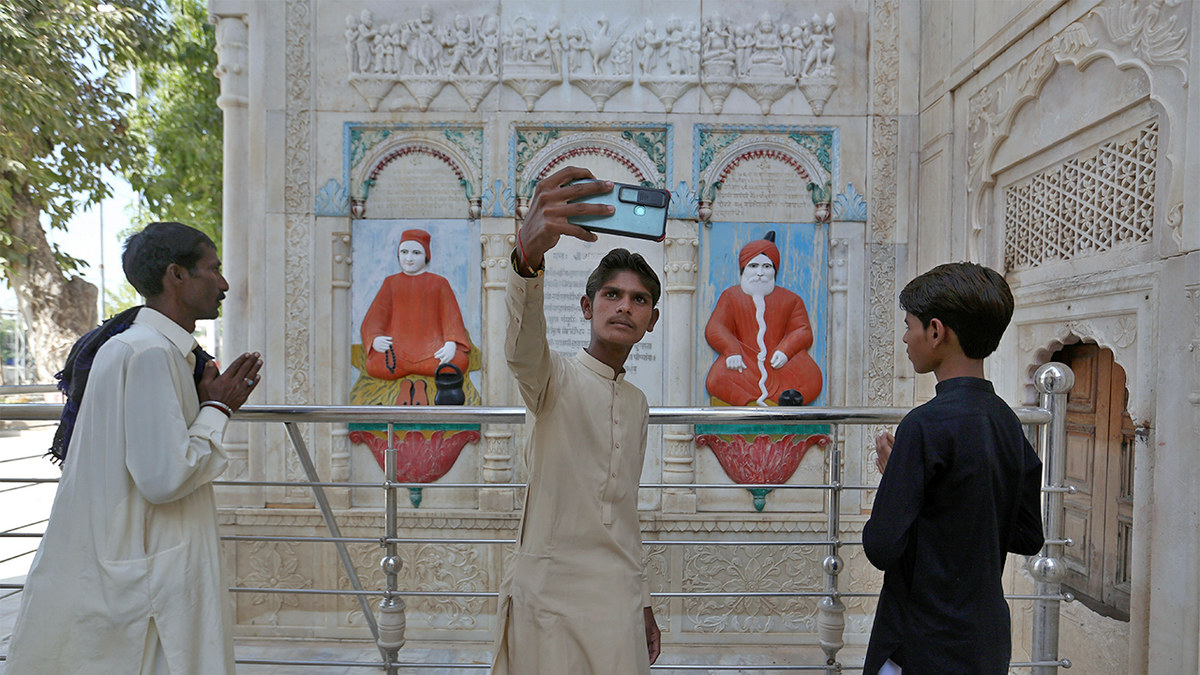
A teenager from Pakistani Hindu community takes selfie with his phone while he with others visit at the Sadhu Bela temple, located in an island on the Indus River, in Sukkur, Pakistan, on October 26, 2022. (AP)
His assertion about a happy and prosperous Hindu community is not the majority view, however. Rights groups have long alleged that Pakistan is not doing enough to protect Hindus' freedom of religion and belief. They cite temple desecrations, attacks on businesses, homes, and individuals and the abduction, forced conversion, and forced marriage of young Hindu women.
Chawla is not the only politician to emphasize an image of religious coexistence in Pakistan. “Most of the Hindu population of the country live in Sindh province satisfactorily, peacefully and without any fear or threat," said Waqar Mahdi, a senior advisor to Sindh’s chief minister.
Mahdi said provincial officials have prioritized protecting the rights of minorities like Hindus and Christians.
But Zahida Rehman Jatt, a University of Sindh lecturer in anthropology and social sciences, said there has been a surge in discrimination and marginalization of Hindus because of rising extremism and fundamentalism in the country. This intolerance risks undermining Pakistan's ties to its Hindu heritage, she said.
“It’s sad because their (Hindus’) contribution is huge to Pakistan," she said. "Most Pakistanis are not aware of the importance of Hindu heritage or the contribution that Hindus — and Sikhs — made for the betterment of Pakistani society.”
Some Hindu-founded institutions had their names changed after Pakistan was created, she said, citing Hyderabad’s Kundan Mal Girls’ School as an example. It was founded in 1914 by Hindu philanthropist Saith Kundan Mal, but is now known as Jamia Arabia Girls School. Such changes are one reason why Pakistanis don't know about the contribution of minority faiths, she said.
Other institutions still bear the names of their Hindu benefactors, including a red brick college and two hospitals in the city Shikarpur, around 35 kilometers (22 miles) from Sukkur.
On the first night of Diwali, one of the most important festivals in Hinduism, clay lamps subtly illuminated doorways and windowsills in Shikarpur. But there were no elaborate light displays or street festivities, and traditional Diwali firecracker fun took place away from the public gaze.
The city of about 200,000 people has a rich Hindu history and traditions, now gradually fading.
One of the keepers of that history can be found in a vast courtyard off a side road. On a recent day in late October, sweet shop owner Dewan Narain Das, 67, enjoyed the cool air. Vats of food bubbled away, children ran and played outdoors, and people gathered to exchange Diwali gifts and good wishes on the holy occasion.
His family has owned a business in Shikarpur since the late 19th century. It started as a soft drink store and, after partition, became a sweet shop. It is famous in the city for falooda, an ice-cream-based dessert with noodles. Das is so well-known in the city that it is easy to find him just by asking for “Dewan Sahib, who owns the falooda shop.”
“People who have lived here for a long time say that the taste they enjoyed 20 years ago is still there in our products,” said Das.
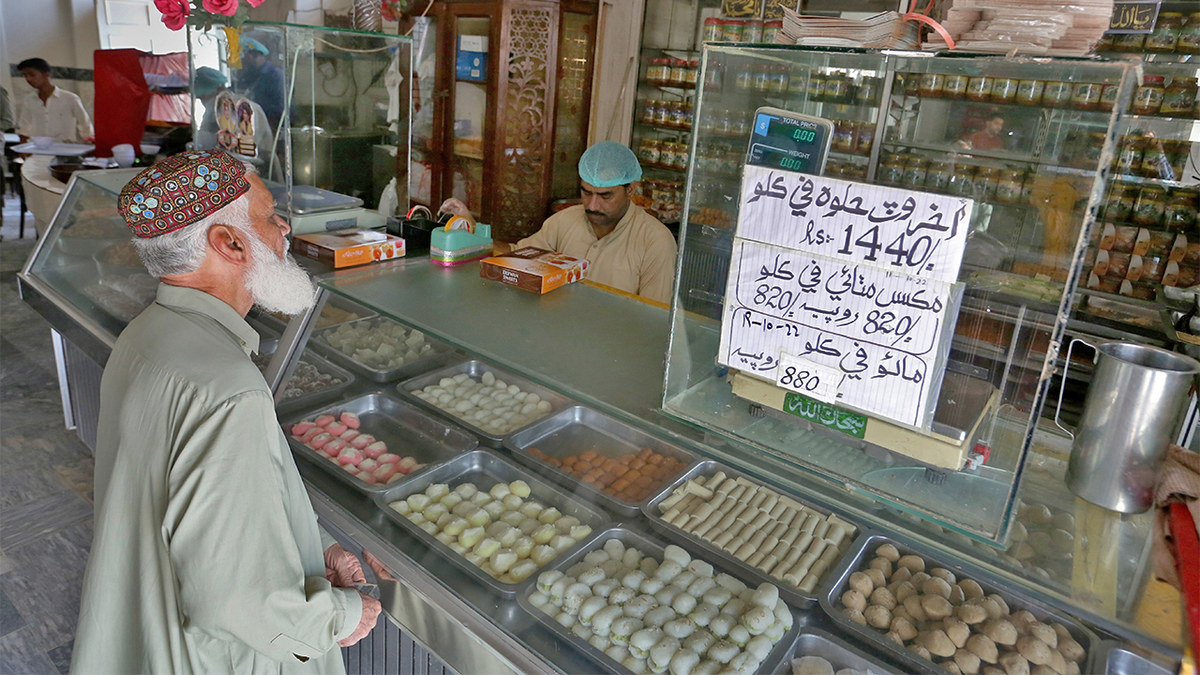
A man buys sweet at a famous 67-year-old sweet shop run by a Hindu businessman, in Shikarpur, Pakistan, on October 26, 2022. (AP)
He said Shikarpur once had a sizable Hindu community and scores of temples, a number that has since dwindled. “Rich people used to organize picnics at the Indus River,” he said. “They used to live here, but their businesses spread to Singapore, Hong Kong, and Mumbai.”
Many Hindus left after partition, and their properties were taken over by a government trust. Today, Pakistan has a population of some 225 million people.
Jatt, the scholar, said that the properties were allotted to refugees coming into newly created Pakistan from India. Most of the tenants paid minimal rent and were often unable to take care of the properties. “They (the residents) are very poor and these properties are grand, previously owned by wealthy Hindus," Jatt said.
After partition, politicians trying to forge a Pakistani narrative emphasized the Muslim heritage, downplaying the contributions of other communities, Jatt said.
“I don’t think we will see this kind of legacy or contribution again from Hindus, the opportunities are on the decline,” she said. "There may be individual cases of philanthropy, but the scale of building and philanthropy will decrease.”



